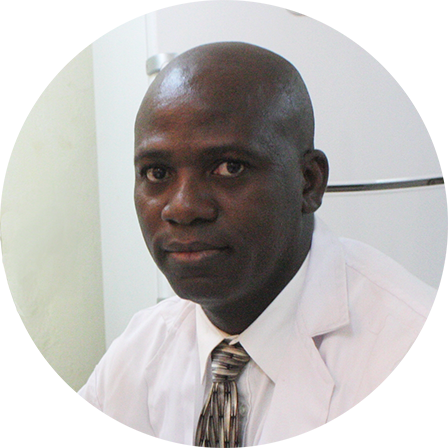
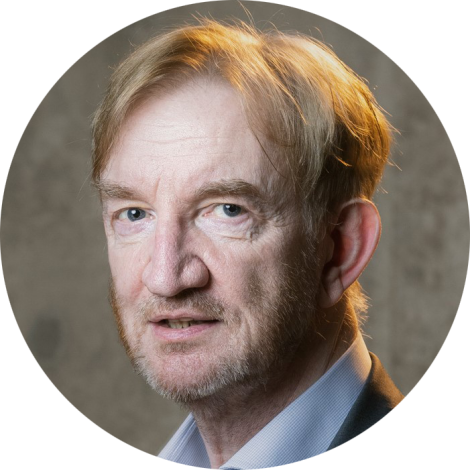
Prof. Halidou Tinto is the Regional Director at the Institute for Health Sciences Research (IRSS) in Burkina Faso. He provides his perspectives on how EDCTP funding has enabled his trial site to blossom and his experience in working on vaccine trials during the COVID-19 pandemic.
Prof. Adrian Hill is the Director of the Jenner Institute, Oxford University in the UK and coordinates the MMVC project. We asked him about the phase 2b trial on the R21/Matric-M vaccine candidate in Burkina Faso, which is part of the MMVC grant and supported by EDCTP.


With encouraging progress in malaria vaccine development, the Multi-Stage Malaria Vaccine Consortium (MMVC) is testing a novel vaccine combination targeting four stages of the malaria parasite life cycle. The front runner component is the R21/Matrix-M candidate vaccine. We interviewed the coordinator of the MMVC project and the principal investigator of the trial site in Burkina Faso about this candidate vaccine, the challenges of vaccine development and conducting clinical trials in times of COVID-19.
Photo: The malaria vaccination team, Nanoro, Burkina Faso
Prof. Adrian Hill
“I believe there is no one magic bullet to finish off malaria. We will still need other control interventions such as bed nets, spraying and antimalarial drugs to complement vaccination.”
— Prof. Adrian Hill
scroll down
What is the biggest obstacle you see on the road ahead?
AH: I think the biggest obstacle on the road may very well be rapid regulatory approval. Malaria vaccine development started a long time ago, with most of the activity taking place in the last 25 years. Recent years saw a big increase in positive trial results, but if we do find a superior candidate, it can still take years to get it licensed. We have partnered with the Serum Institute of India which will be able to produce our vaccine in very large quantities, at a modest cost, so I expect that this would not pose problems for availability. I hope that the current COVID-19 pandemic has taught us that quick access to life saving medical products is key. I also hope that the collective experience of this health crisis feeds into development and more rapid regulatory approvals for medical interventions for longstanding global medical emergencies such as malaria.
What are the next steps for this candidate?
AH: We recently started a Phase 3 trial; this is only the second ever phase 3 trial for a malaria vaccine candidate, following RTS,S. The trial will assess efficacy and safety in 4800 children across five sites in Burkina Faso, Kenya, Mali and Tanzania.
However, even if successful and we obtain licensure, I believe there is no one magic bullet to finish off malaria. We will still need other control interventions such as bed nets, spraying and antimalarial drugs to complement vaccination. But I am confident that if we have a highly effective vaccine and efficacy against multiple stages is observed, we will be able to reach the WHO goals and, eventually, perhaps even totally eradicate malaria.
The frontrunner of your programme - the R21/Matrix-M vaccine candidate – has shown very promising results- can you tell us a bit more about this?
AH: Yes, this candidate shows great promise. The earliest results, from our Controlled Human Malaria Infection (CHMI) challenge trial in healthy volunteers, already showed a sterile efficacy rate of 65-82%, which encouraged us to move to the next stage. The results of the trials that followed have been quite consistent, including the latest EDCTP-funded Phase 2b trial run by Professor Halidou Tinto in Burkina Faso which showed 77% efficacy and a very good safety profile. A booster dose given one year later stimulated as high immune responses as were seen following the primary series of vaccinations. Results from the second year of follow up are forthcoming and look promising as well.
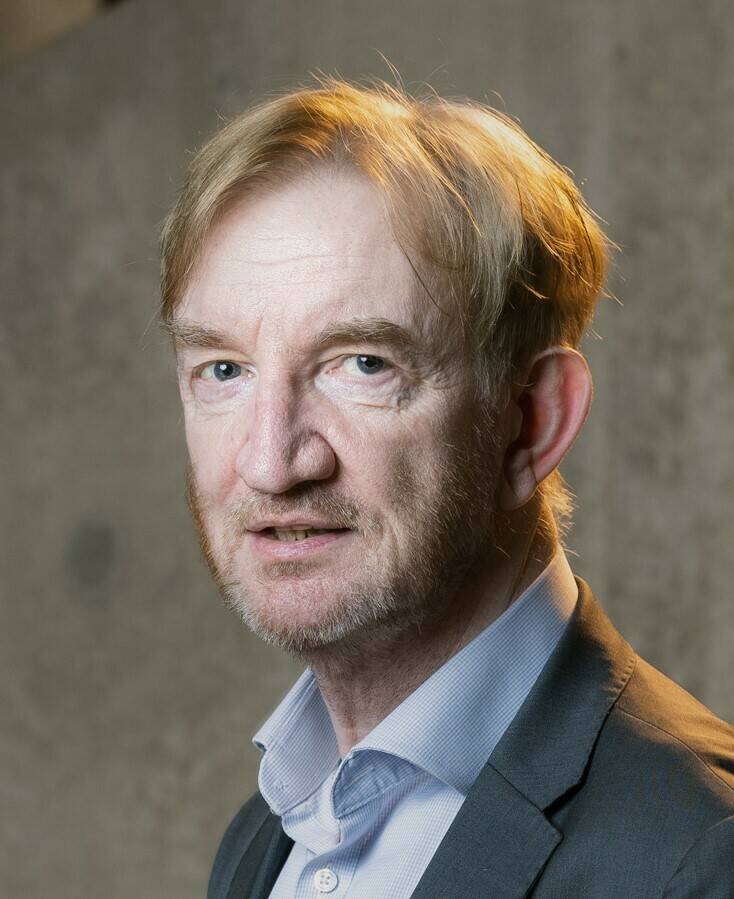
Prof. Hill, can you tell us a bit about the MMVC grant and its main purpose?
Adrian Hill (AH): Our aim is to develop vaccines for African infants and children at risk of malaria disease and transmission. In this project, we are developing the first multi-stage vaccine designed to target multiple stages of the P. falciparum malaria parasite’s life-cycle, including the sporozoite, blood, and mosquito stages. The only licensed malaria vaccine, RTS,S, targets the initial human sporozoite stage, to prevent liver infection. We would like to develop a vaccine targeting additional stages of the parasite’s development. To do this, we are testing each component of the multi-stage malaria vaccine in clinical trials in Africa to ensure the vaccines are safe, stimulate an immune response and, in some of our studies, we assess whether they are effective in preventing malaria.
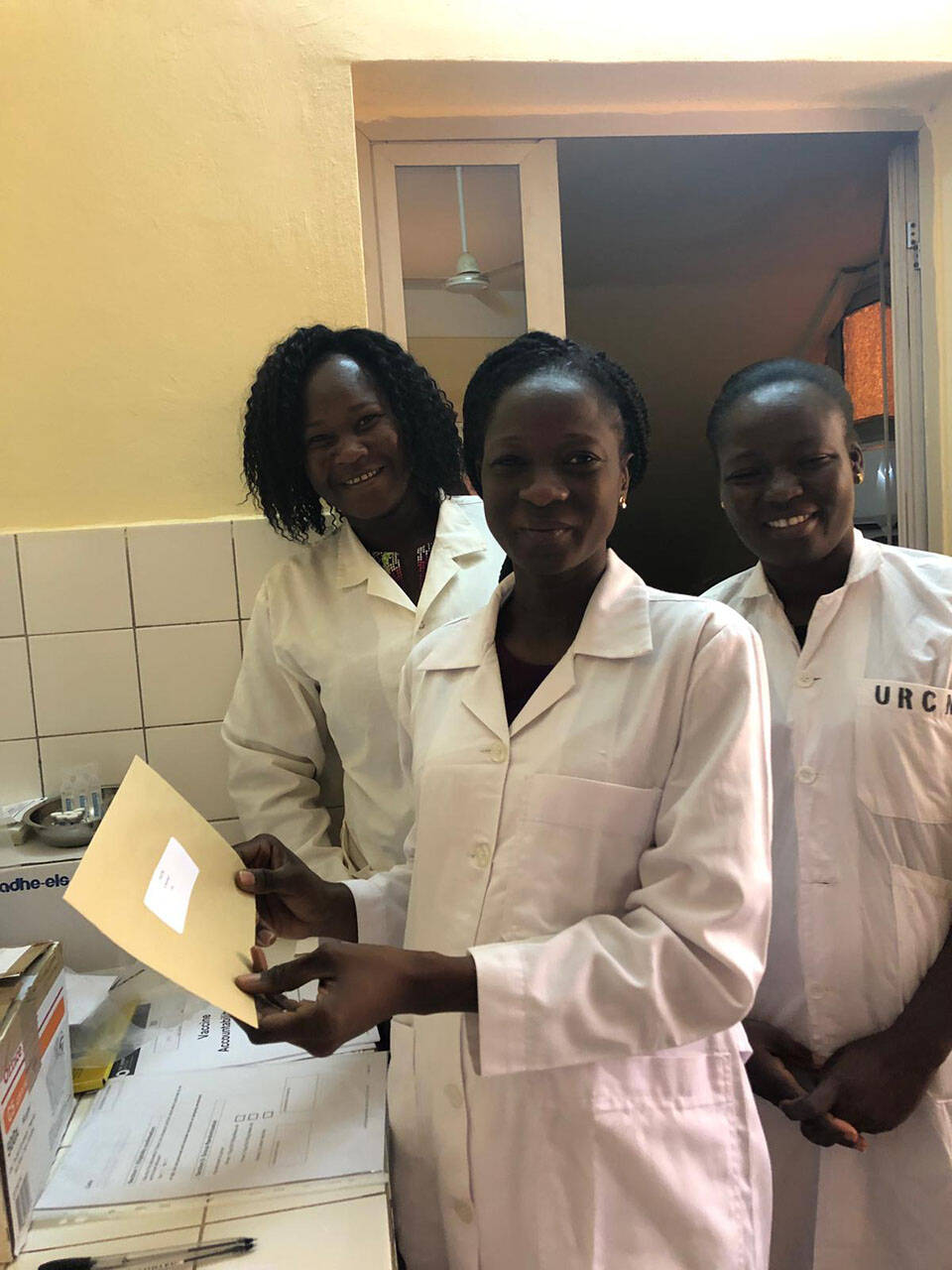
Photo: MVVC filed activities at the Nanoro vaccine trial site, Burkina Faso.
Prof. Halidou Tinto
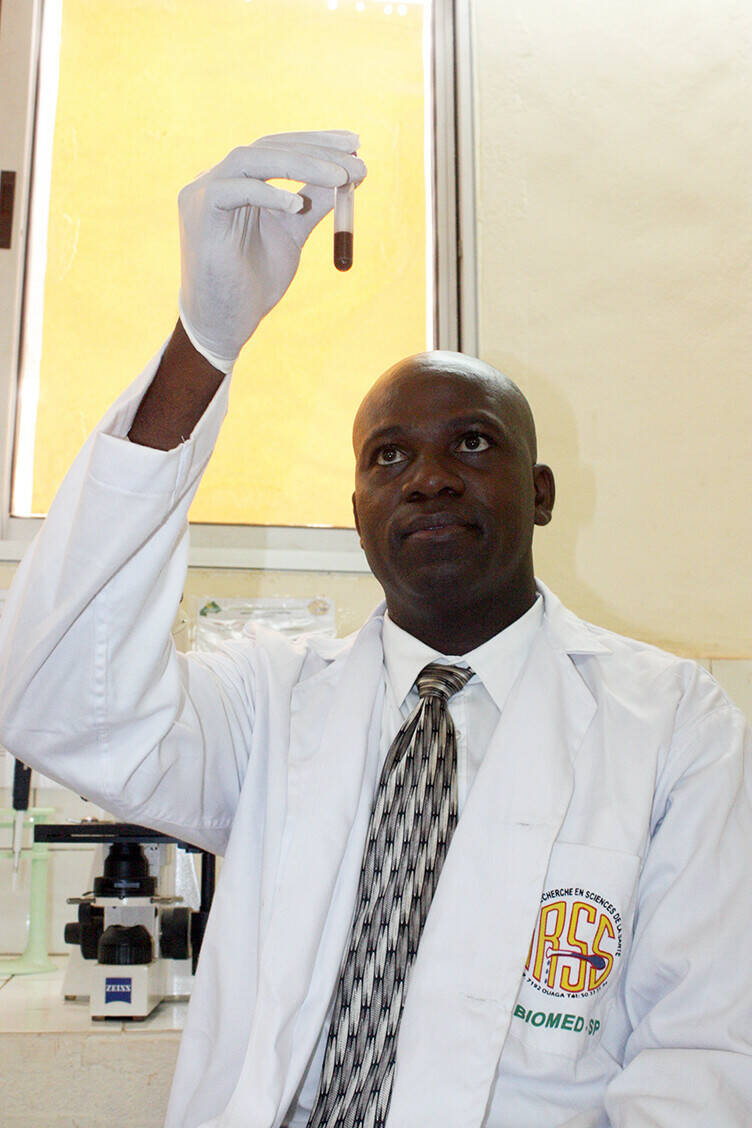
How did you manage to continue trial activities during the COVID-19 epidemic? Can you share with us some of the challenges you experienced and how you overcame these?
HT: The outbreak of the COVID-19 and measures taken to face the epidemic by Burkina Faso’s government including the lock-down, occurred when we were conducting the passive follow-up of the study participants in the Phase 2b trial. That gave us time to get well prepared for the upcoming scheduled visits. A COVID-19 contingency plan was set up to define all the measures to follow when conducting any trial-related activities including home visits and visits at the clinic.
We were lucky that in rural Burkina Faso such as Nanoro, the COVID-19 epidemic has affected very few people. However, one of the challenges was to get all the study participants well sensitised and keen to wear facemasks in public and to observe social distancing. To face these challenges, we initiated home-based sensitisation of the study participants through trained field workers and at the clinic with the study clinicians. Furthermore, we provided the facilities with handwashing stations, supplied facemasks and increased the number of seats at the clinic waiting room to allow easy application of social distancing.
Prof Tinto, can you tell us a bit about the history of malaria vaccine trials done at your site; and the role EDCTP funding has played in building trial site capacity?
Halidou Tinto (HT): Yes, the Clinical Research Unit of Nanoro (IRSS-CRUN) was created in 2009 thanks to funding granted by the Malaria Vaccine Initiative (MVI) to conduct the GSK RTS,S malaria vaccine candidate Phase 3 trial. Concomitantly to the RTS,S trial, the CRUN also participated in a multicenter trial funded by EDCTP to test four artemisinin-based combination therapies (ACTs) for malaria treatment in pregnant women. Thanks to the latter, the site was able to set-up the Nazoanga field station where some of the RTS,S vaccine trial participants have been enrolled and followed-up. Moreover, the EDCTP grant provided support for capacity building for myself and the PhD student Marc Christian Tahita, and we continue to play key roles in ongoing vaccine trials.
As a member of the MMVC consortium, the CRUN has recently conducted the R21/Matrix-M malaria vaccine candidate Phase 2b trial with excellent results as reported elsewhere in this piece. The MMVC grant has made a great contribution in terms of capacity building including the training of a Master's student, the refurbishment and upgrade of the clinical, pharmacy and laboratory facilities, the support to the health and demographic surveillance system (HDSS) and the upgrade of the logistic capacities. It is thanks to the contribution of this grant and many other EDCTP-funded projects that the CRUN is today a well-recognised clinical trial unit worldwide. We acknowledge EDCTP for this significant contribution to build and support clinical research activities in Africa. We expect to continue to play a key role in future malaria (vaccine) trials and other initiatives targeting high burden diseases for the well-being of the African populations.
scroll down
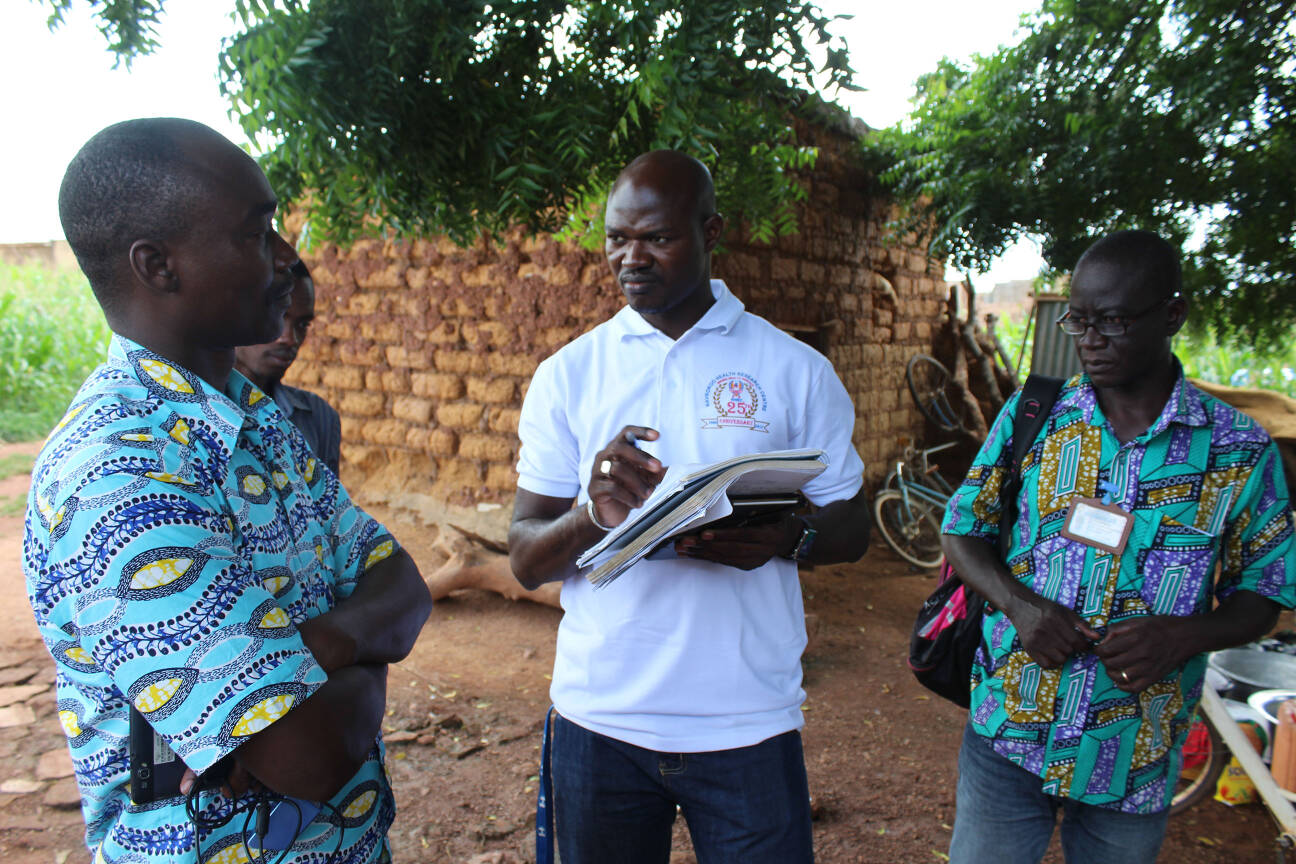
“It is thanks to the contribution of this grant and many other EDCTP-funded projects that the CRUN is today a well-recognized clinical trial unit worldwide.”
— Prof. Halidou Tinto
